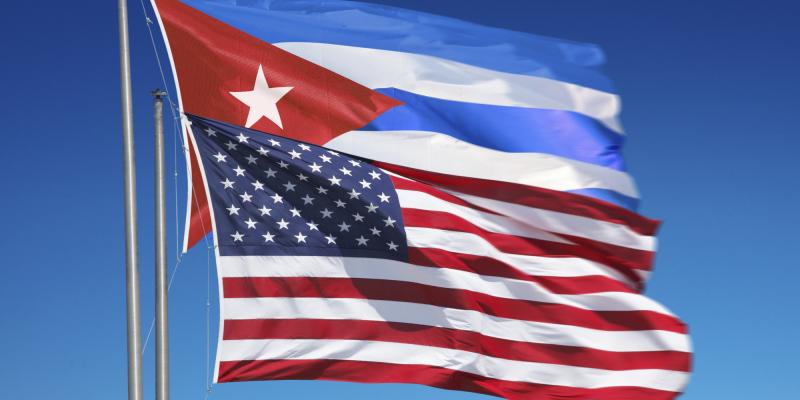Even With Second Round Talks Between U.S. And Cuba Uncertainty Looms For Both Countries

Natasha Espinosa and her family were disappointed when Fidel Castro transferred power over to his brother, Raul, in 2008.
Espinosa says her family hoped a change in Fidel’s health would “signal an end to the regime,” but ”didn't really expect anything different” from the younger Castro.
So when the first generation American with origins from La Vibora, Cuba heard of the United States’ plans to normalize relations with the island nation back in December, she was unsure of what to expect and when change would be implemented, if any.
Carla Robbins, Adjunct Senior Fellow at the Council on Foreign Relations, echoes Espinosa’s uncertainty, especially as it pertains to the Castros’ administrations.
“Fidel existed in a very anti-American context, whereas domestically [Raul] has a reputation of accepting more economic reform,” Robbins says.
But signs of long-term progress are still tentative.
Even with President Obama’s plan to “bring Cuba in from the cold,” Robbins says, “it’s too early” to know what is in store for the two countries.
The second round of talks between Cuba and the U.S. on Friday will likely revolve around establishing full-fledged embassies, the movement of diplomats, visas, access to equipment and banking.
Robbins believes President Obama wants to not only correct failed policy from decades of isolating Cuba but also be on good terms with the nation prior to the Summit of the Americas in April. Regardless of this, the Adjunct Senior Fellow says having the U.S. inching towards normalcy with Cuba is historic.
“They can decide to let American telecommunication companies invest and accept the potential changes of the outside world,“ Robbins says.
SEE ALSO: President Obama Announces Plans To Open U.S. Embassy In Havana
Professor emeritus of Anthropology at the University of Southern California, G. Alexander Moore, is more hesitant about a major diplomatic overhaul between the U.S. and Cuba, especially concerning the Castro brothers’ views on dissidents.
“Neither would want Cuba to change its Constitution and allow opposition figures, either in Cuba or in Miami, to return and run for office. That will never happen while either one lives,” Moore says. He adds, “We can expect guarded but cordial relations, more touristic and trade ties, but no big change in the Cuban political system.”
This worries Natasha Espinosa to some degree.
“My country deserves so much more than to be reduced to a cruise stop,” Espinosa says.
One of her biggest expectations with better relations between the U.S. and Cuba is for her family.
“I really hope I can take my children [to Cuba one day] and they can see how amazing the culture of their people is,” Espinosa says.
Reach Staff Reporter Jessica Moulite here. Follow her on Twitter.



